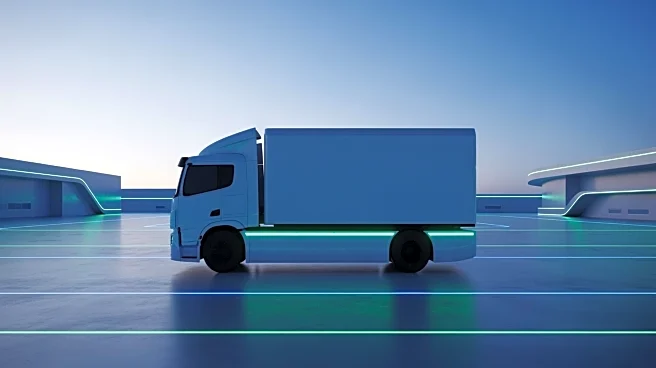What's Happening?
Scania is conducting tests on hydrogen fuel cell trucks in collaboration with Norwegian logistics company Asko Norge as part of its Pilot Partner programme. The tests aim to evaluate the technical performance, operational feasibility, and commercial potential
of these vehicles, which can achieve ranges of up to 1,000 km per refueling. While Scania maintains battery-electric transport as the core of its decarbonization strategy, the hydrogen tests are intended to explore the viability of different energy carriers and powertrains under real-world conditions.
Why It's Important?
Scania's exploration of hydrogen fuel cell technology represents a significant step in diversifying energy solutions for the transport sector. Hydrogen trucks could offer a viable alternative to battery-electric vehicles, particularly for long-haul transport where extended range and quick refueling are critical. This initiative could influence the future direction of the automotive industry, encouraging other manufacturers to consider hydrogen as a complementary technology to battery-electric solutions. The results of these tests could shape future investments and policy decisions related to sustainable transport.
Beyond the Headlines
The development of hydrogen fuel cell technology in the transport sector raises important questions about infrastructure and energy sourcing. Establishing a robust hydrogen refueling network will be essential for the widespread adoption of hydrogen vehicles. Additionally, the environmental benefits of hydrogen depend on the production methods used, with green hydrogen offering the most sustainable option. The success of Scania's tests could accelerate the transition to a more diverse and resilient energy landscape for transportation.















